Back in Libya
Report by Marc Roussel
Another return.
To the Libya of the Arab Spring. Ten years after our team’s last visit there for the filming of The Oath of Tobruk. As in May 2011, Misrata is our destination.
On the road to Leptis Magna. At that ancient site Bernard-Henri Lévy’s appealed for a truce in 2011. Upon our return, one hears only the echo of his voice and of waves breaking on the steps of the amphitheater.
In Tarhuna, we hear the sound of another music. That of bullets ricocheting off the windows and sides of armored vehicles. Who is behind the ambush of our convoy? Who seeks to silence the voice of Bernard-Henri Lévy?
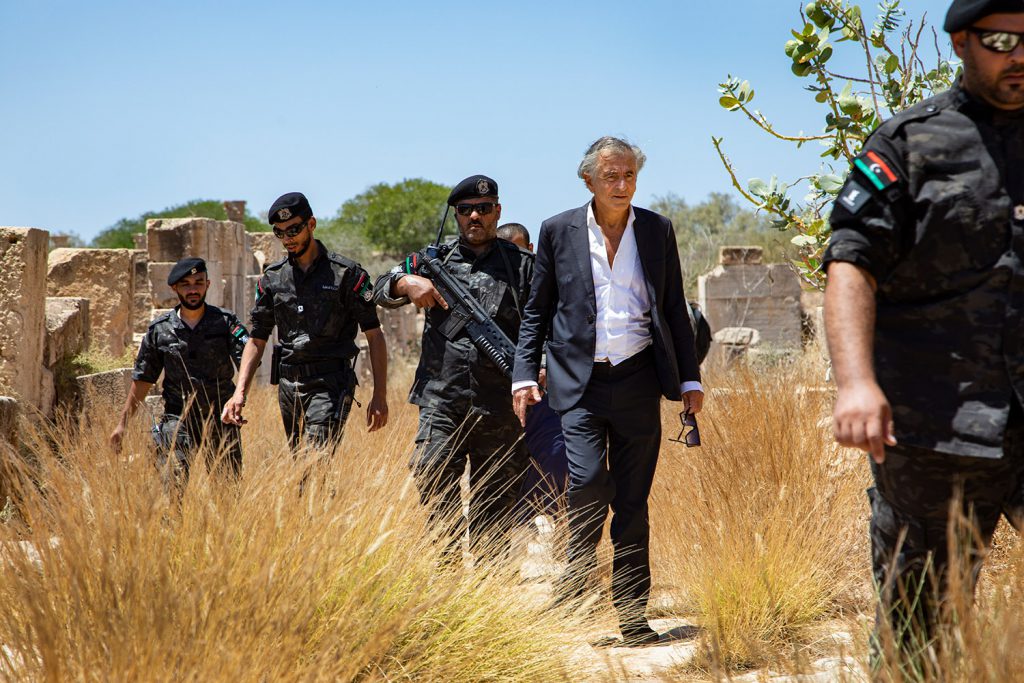
At the Roman site of Leptis Magna, escorted by special forces sent by the Minister of the Interior, Fathi Bashagha, on July 25.
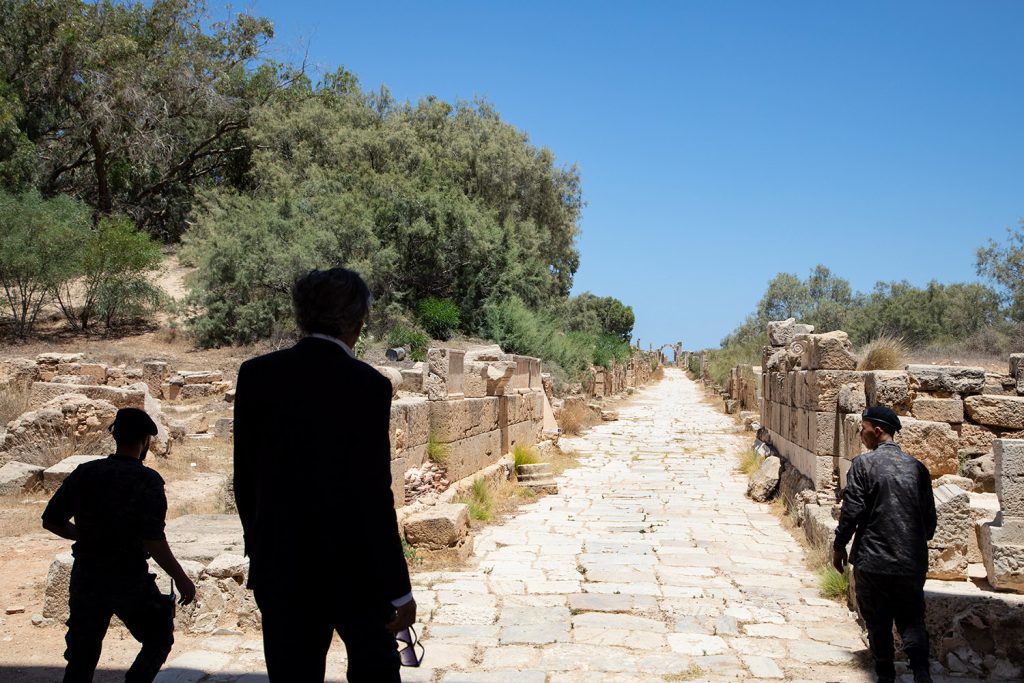
“Leptis Magna, the largest ancient city on the south shore of the Mediterranean and proof, if proof were needed, that Libya was, before becoming Berber, Arab, and Muslim, a Roman land.”
Bernard-Henri Lévy, The Will To See
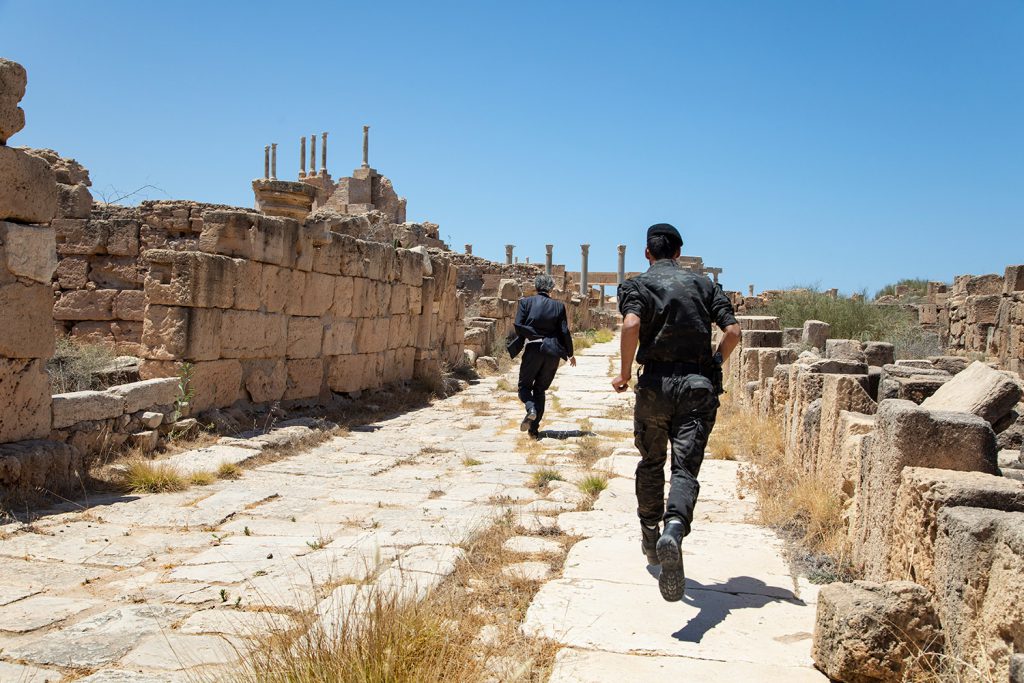
“I strolled the serpentine pavements, the perfect stones polished by wind and sea seeming like those of a revived city.”
Bernard-Henri Lévy, The Will To See
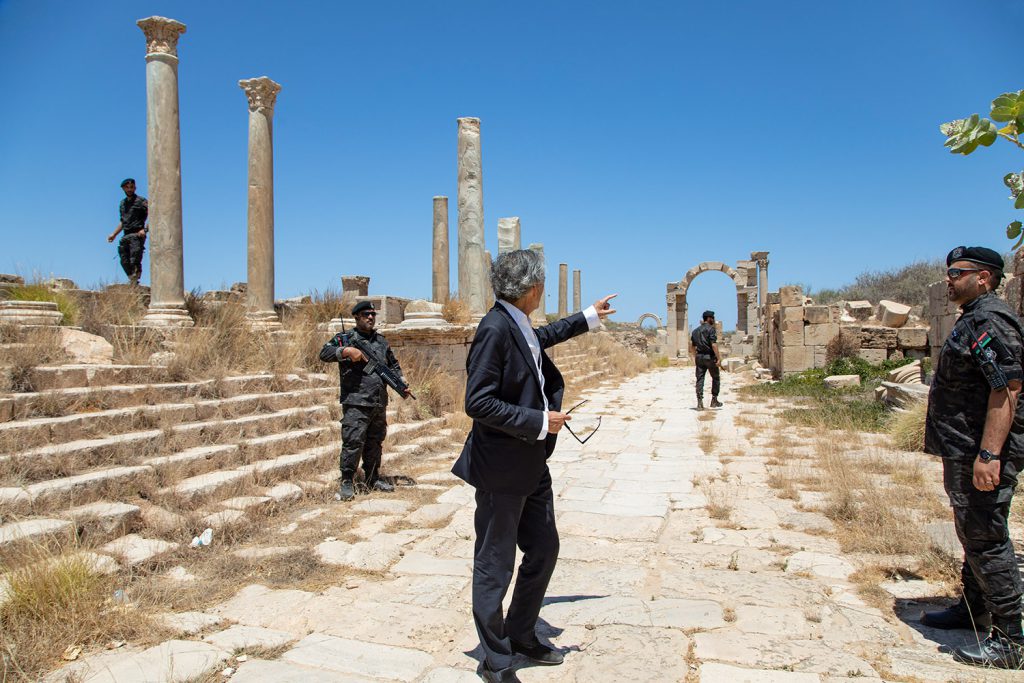
“And there, in this magnificent and inspired place where, like it or not, East and West crossed paths, in this ancient melting pot where civilizations succeeded each other without ever completely disappearing or ceasing their secret dialogue of stone.”
Bernard-Henri Lévy, The Will To See
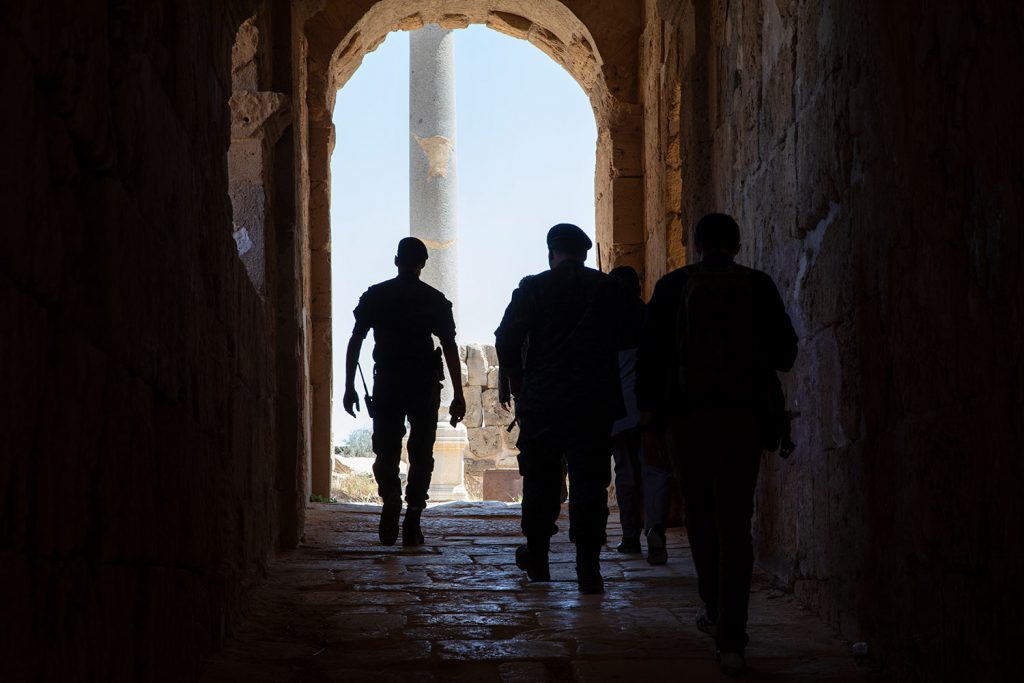
“I passed under the arches built to celebrate victories over the intractable Punic tribes who captured Gustave Flaubert’s fancy in Salammbô.”
Bernard-Henri Lévy, The Will To See
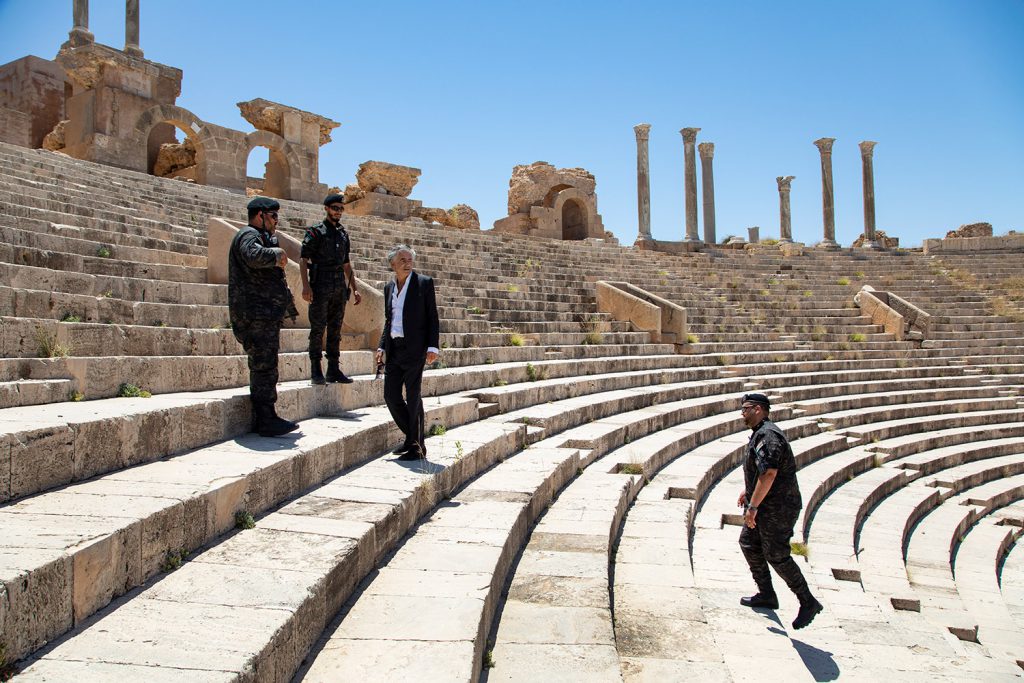
“I climbed onto the proscenium of the empty theater in the company of a small group of young Libyans who told me how they, their fathers, and the fathers of their fathers defended the site against the wounds of time, earthquakes, pillagers, Qaddafists, and the depredations of the Islamic State, which wanted to destroy Leptis Magna as it had Palmyra.”
Bernard-Henri Lévy, The Will To See
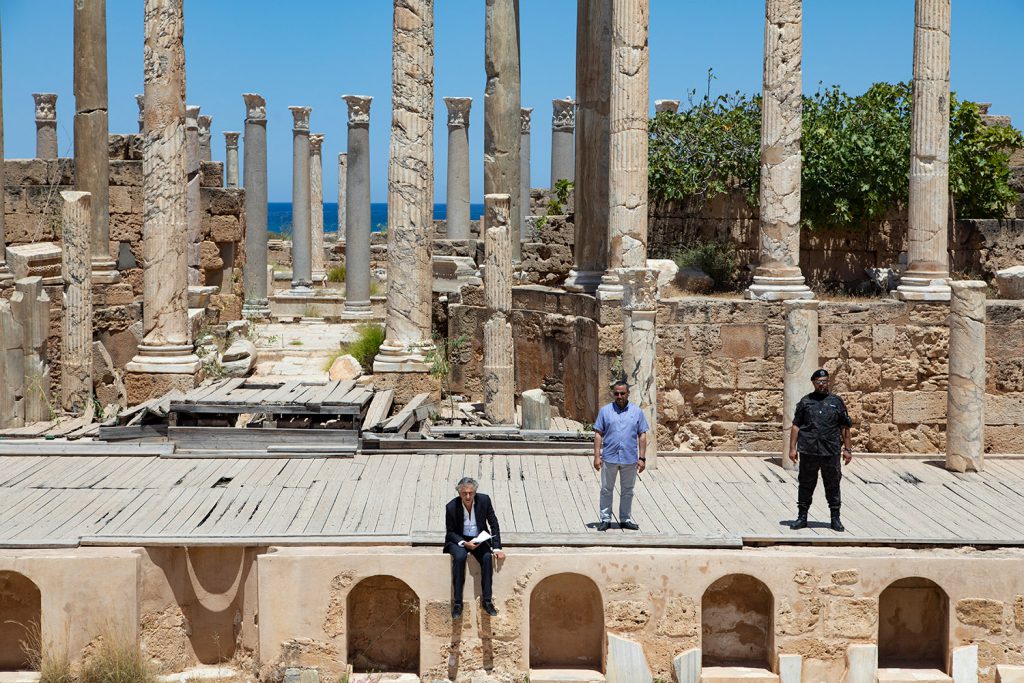
“And, intimidated by the silence, overcome by my audience’s emotion and my own, I read out the ‘Appeal to People of Good Will’.”
Bernard-Henri Lévy, The Will To See
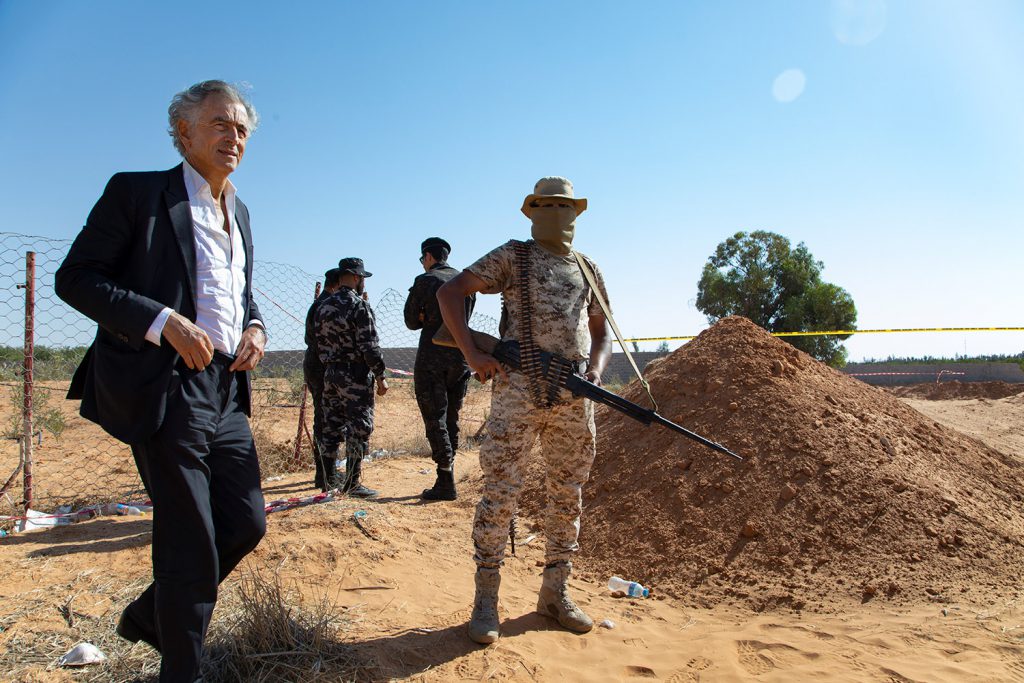
“We stepped under a red tape that, as at a crime scene, marks off an area that one is theoretically not supposed to enter — ‘this is the place where the victims of 2010 were dug up, from when the al-Khanis and their militia, al-Khanya, were working for Qaddafi and doing his dirty work.’ ”
Bernard-Henri Lévy, The Will To See
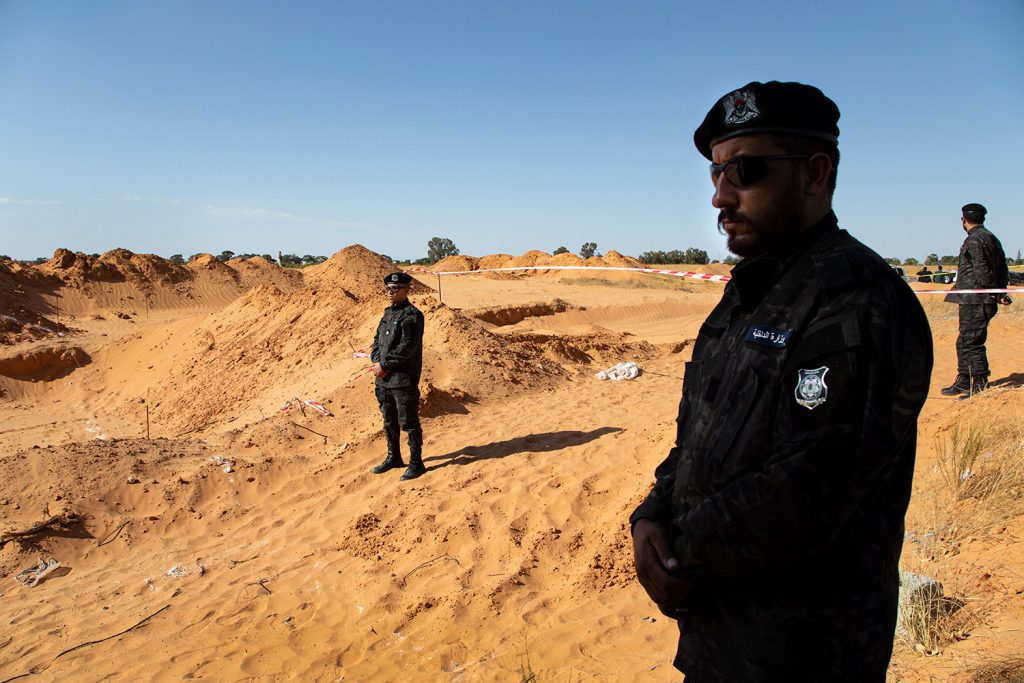
“ ‘There’s not just one mass grave,’ the young soldier in a desert ranger’s uniform told me, once I had gained his confidence. Wearing a bush hat, with his rifle and two ammo belts slung over his shoulders, he guided me in the oppressive heat over a landscape of sand and death.”
Bernard-Henri Lévy, The Will To See
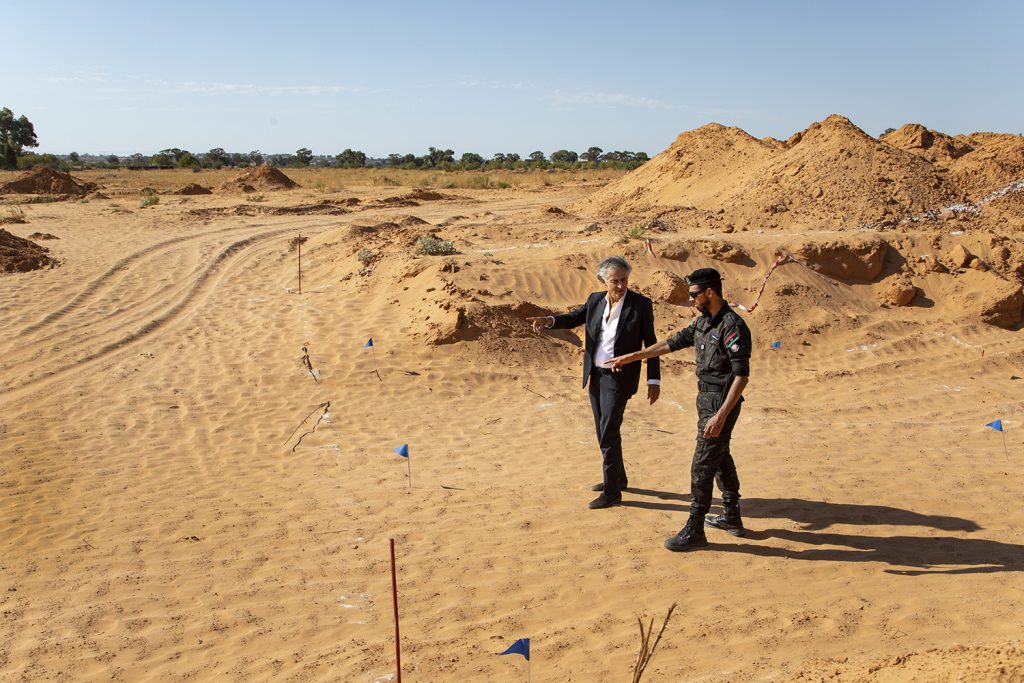
“ ‘Here in this first ring you have the ones killed this year […]. Over there,’ he continued, pointing at the endless sea of sand, dotted with little piles of rubble and rectangular graves outlined with quicklime, are ‘the casualties from two years ago,’ when the militias were fighting each other.”
Bernard-Henri Lévy, The Will To See
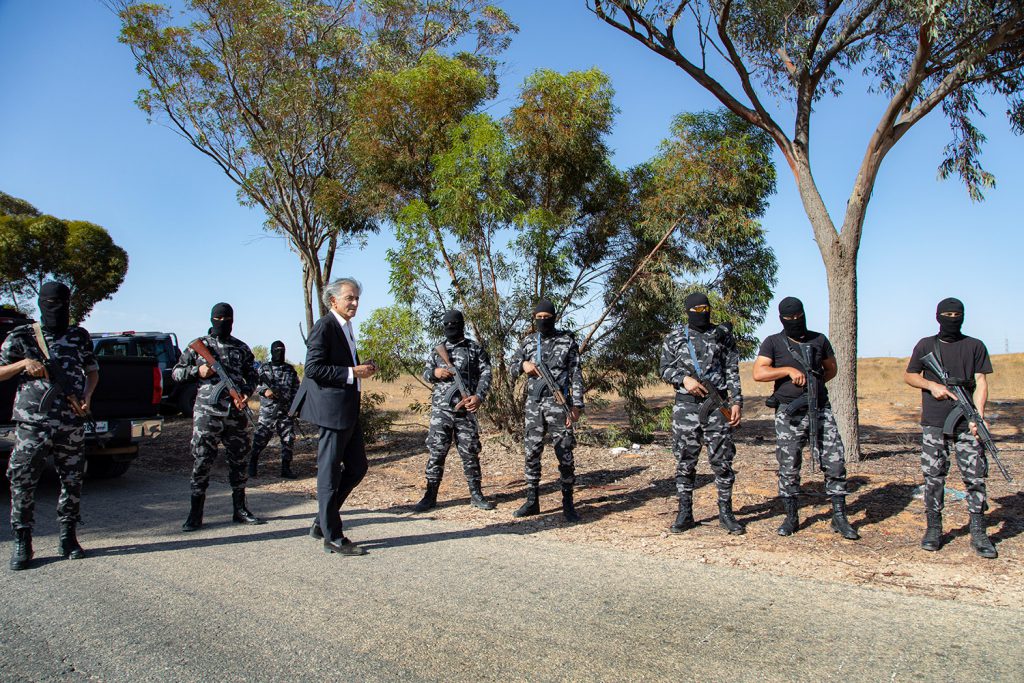
Tarhouna — the escort that will allow Bernard-Henri Lévy and the photographers Gilles Hertzog and Marc Roussel to escape their ISIS attackers.
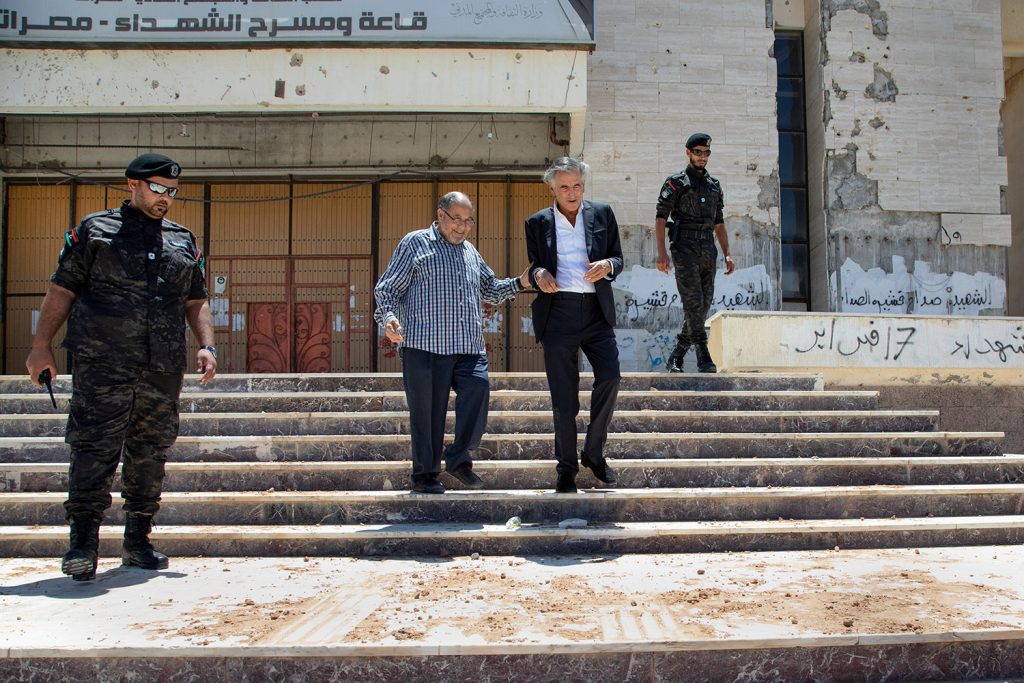
Tripoli — Bernard-Henri Lévy meets Mansour Saif Al-Nasr of the Libyan National Transitional Council (NTC).